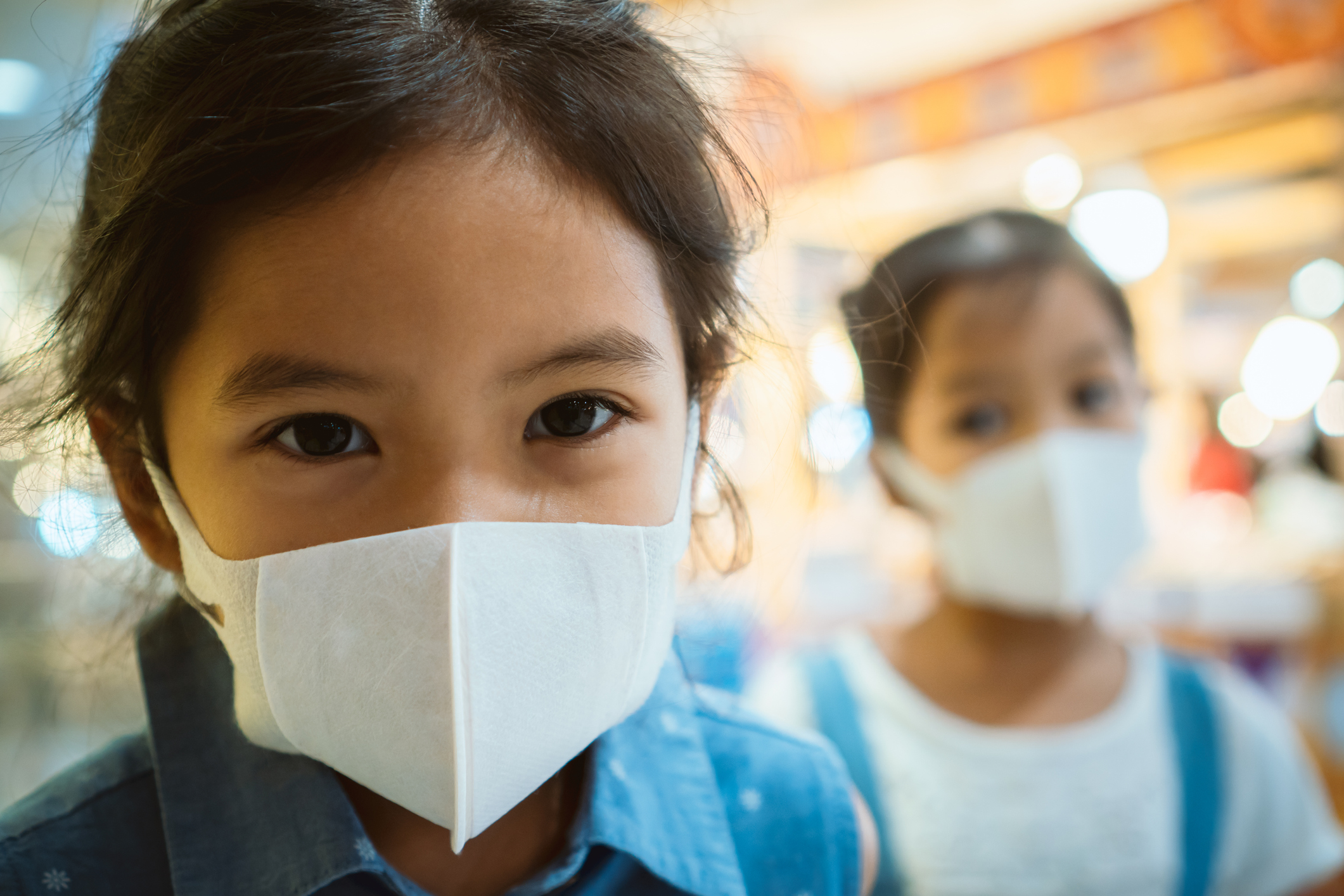How to have a panic-free conversation with your kids about the coronavirus
Here are some pointers for keeping kids — and yourself — calm


A free daily email with the biggest news stories of the day – and the best features from TheWeek.com
You are now subscribed
Your newsletter sign-up was successful
An epidemic can be a scary time for parents. With the World Health Organization (WHO) declaring the coronavirus a public health emergency on Thursday, and the U.S. reporting its first case of person-to-person transmission of the virus the same day, it's only natural to feel a sense of unease.
But take a deep breath. Many children are already worried by what they're hearing about the outbreak, and although the daily updates about the virus are alarming, it's really important to remember the impact these headlines can have on kids. To save them (and yourself) from unnecessary anxiety, there are a few simple things that you can say and do.
Here are some pointers for keeping kids calm and holding a panic-free conversation about coronavirus.
The Week
Escape your echo chamber. Get the facts behind the news, plus analysis from multiple perspectives.

Sign up for The Week's Free Newsletters
From our morning news briefing to a weekly Good News Newsletter, get the best of The Week delivered directly to your inbox.
From our morning news briefing to a weekly Good News Newsletter, get the best of The Week delivered directly to your inbox.
1. Be aware of your own behavior. It's important that parents and caretakers understand the effect their own behavior can have on children. If you're visibly upset or react in a way that suggests you're fearful, they'll take their cues from you. Just remember to stick to what we know about the outbreak.
2. Tell them the facts. Scary headlines attract attention and help sell newspapers but they don't always tell the whole truth: Ensuring you're armed with facts will help keep coronavirus conversations calm, considered, and constructive.
So what do we know and how much should you share with a child? As of Jan. 30, there were just six confirmed cases of the new coronavirus in the U.S. — in California, Illinois, Oregon, and Washington. By comparison there are more than 7,700 confirmed cases in China, with all regions affected. Most of the 170 people who have died so far are known to have already been in poor health, and all but four of the fatalities were from Hubei province, where the outbreak began. No one in the U.S. has died. Sharing this information should help reassure kids that there is no immediate risk to themselves, their friends, or their family.
3. Explain what efforts are being made to contain the virus. Chinese authorities appear to have acted quickly. Travel in and out of the affected areas has been restricted, and scientists are working to develop a vaccine. In the U.S., the government is carefully monitoring the situation and — despite the WHO announcement — officials at the Department of Health and Human Services say the risk to the public remains low. A federal taskforce is leading the American response to the coronavirus so kids should be confident any confirmed cases will be isolated and treated quickly.
A free daily email with the biggest news stories of the day – and the best features from TheWeek.com
4. Finally, offer practical advice. For the time being the easiest way to reduce the risk of being affected by viruses of any sort (including the common cold) is to cover your nose and mouth when you cough or sneeze, keep hands clean by washing them regularly with soap and water or an alcohol-based rub, and avoid touching the eyes, nose, and mouth. It is also wise to avoid anyone displaying symptoms such as a fever or a cough. These are easy habits for kids to adopt, and should help them feel as though they're able to exert some control over their circumstances.
Events like this can be very scary for kids so focussing on the known facts rather than fixating on worst-case scenarios will allow your child to process the situation and keep it in perspective. However worried you may feel, do your best to keep your concerns to yourself and make sure your child understands that you will do everything in your power to keep them — and yourself — safe.
Want more helpful parenting advice delivered straight to your inbox? Sign up for The Week's parenting newsletter here.
Anna Bassi is the editor in chief of The Week Junior (U.K. edition).
-
 How the FCC’s ‘equal time’ rule works
How the FCC’s ‘equal time’ rule worksIn the Spotlight The law is at the heart of the Colbert-CBS conflict
-
 What is the endgame in the DHS shutdown?
What is the endgame in the DHS shutdown?Today’s Big Question Democrats want to rein in ICE’s immigration crackdown
-
 ‘Poor time management isn’t just an inconvenience’
‘Poor time management isn’t just an inconvenience’Instant Opinion Opinion, comment and editorials of the day
-
 A Nipah virus outbreak in India has brought back Covid-era surveillance
A Nipah virus outbreak in India has brought back Covid-era surveillanceUnder the radar The disease can spread through animals and humans
-
 Covid-19 mRNA vaccines could help fight cancer
Covid-19 mRNA vaccines could help fight cancerUnder the radar They boost the immune system
-
 The new Stratus Covid strain – and why it’s on the rise
The new Stratus Covid strain – and why it’s on the riseThe Explainer ‘No evidence’ new variant is more dangerous or that vaccines won’t work against it, say UK health experts
-
 RFK Jr. vaccine panel advises restricting MMRV shot
RFK Jr. vaccine panel advises restricting MMRV shotSpeed Read The committee voted to restrict access to a childhood vaccine against chickenpox
-
 RFK Jr. scraps Covid shots for pregnant women, kids
RFK Jr. scraps Covid shots for pregnant women, kidsSpeed Read The Health Secretary announced a policy change without informing CDC officials
-
 New FDA chiefs limit Covid-19 shots to elderly, sick
New FDA chiefs limit Covid-19 shots to elderly, sickspeed read The FDA set stricter approval standards for booster shots
-
 RFK Jr.: A new plan for sabotaging vaccines
RFK Jr.: A new plan for sabotaging vaccinesFeature The Health Secretary announced changes to vaccine testing and asks Americans to 'do your own research'
-
 Five years on: How Covid changed everything
Five years on: How Covid changed everythingFeature We seem to have collectively forgotten Covid’s horrors, but they have completely reshaped politics
